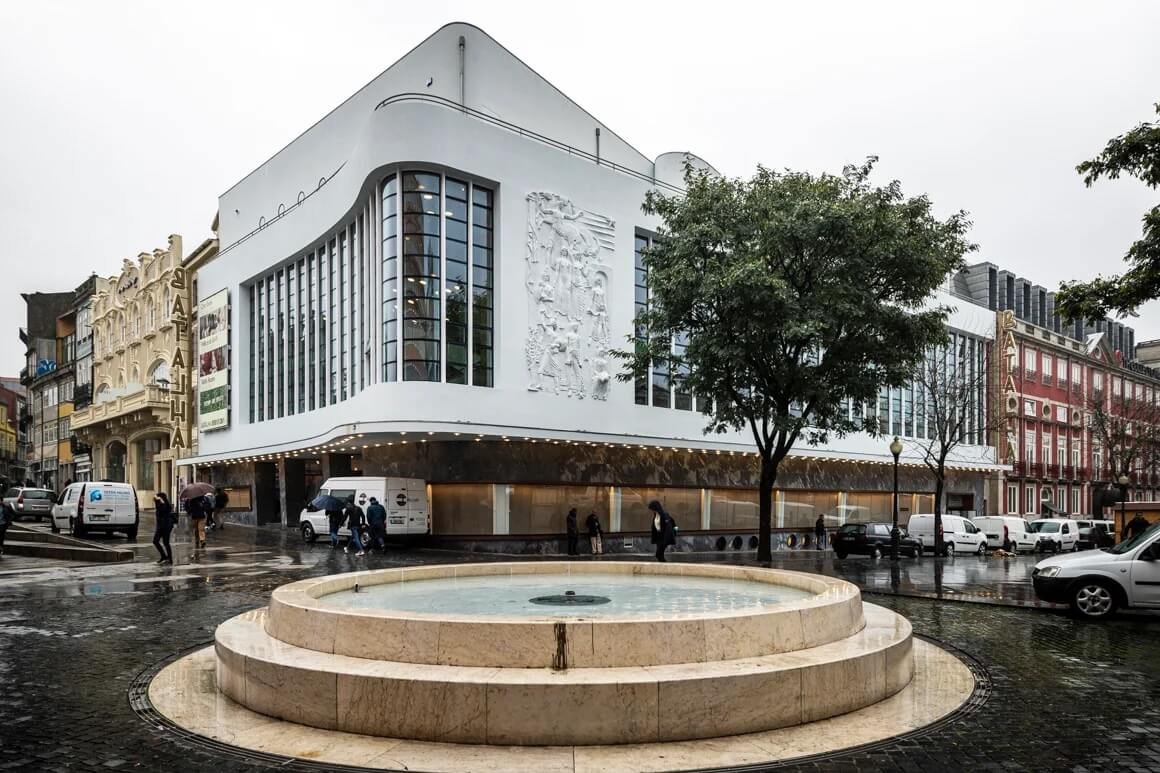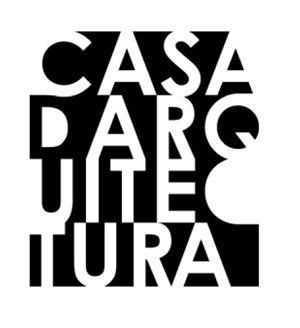[PODCAST]
In the fifth season, we had a conversation with the architects Alejandro Aravena, Alexandre Alves Costa, Sérgio Fernandez, Helena Vieira, Pedro Ferreira, Tiago Rebelo de Andrade, Marta Brandão, Mário Sousa, Luís Tavares Pereira, Guiomar Rosa, Francisco Aires Mateus, Paulo Moreira, Andreia Garcia, Fátima Fernandes, Teresa Novais, Jorge Carvalho, João Branco, Paula del Rio, Ana Aragão, Amanda Levete, and Filipe Almeida.
Season 5

Episode 53
“So, the challenge is: instead of [the architects] choosing to be the creative genius – that deals with issues that only interest other architects –, or be the one that engages into what matters to society but doesn't do projects… can we, [as architects] engage in conversations, problems, challenges that matter to society? But [when we] enter that conversation, [we should communicate] with the specific knowledge that we have, which is to do projects.”
[Alejandro Aravena]
The new EDP building, in Lisbon, © Photo courtesy Elemental

Episode 54
“Everyone – from the contractor to the inspection and the representative of the work's owner was always enthusiastic during the project. [It was something that] had never happened to us to the point that there were simple workers who cried when we discovered the frescoes by [Júlio] Pomar, which were covered.”
[Sérgio Fernandez]
Batalha Cinema Centre, Porto, © Photo Guilherme Costa Oliveira
This episode was special. It was the first time we recorded the podcast with an audience.
The recording took place at Casa da Arquitectura on March 25, 2023. On that day, we also celebrated two years of podcasting.
These are some of the photographs from that day by Ivo Tavares Studio.
Partner

Episode 55
“I think that, above all, the experience of working with natural materials and with simple things: the Chapel [of Nossa Senhora de Fátima] turned out to be a little bit also the result of our experience and our learning as scouts.”
[Pedro Ferreira]
Chapel of Nossa Senhora de Fátima, Idanha-a-Nova, © Photo João Morgado

Episode 56
“Architecture cannot be a selfish exercise. It is not a house of its own. It will be a house that will be used for the next generations. Whether it's for the generations [those families] leave behind or for the generations that will buy that property.”
[Tiago Rebelo de Andrade]
Náutico Building (Edifício Náutico) in Cascais, © Photo Fernando Guerra | FG + SG

Episode 57
“Houses are our private museums, they are our religious or spiritual place, where we confess and where we live... [Where we learn to take our first steps]. [It was] our kindergarten. It will be our retirement home, our restaurant. It's all this.”
[Mário Rebelo de Sousa]
Mima System, © Photo José Campos - Photographer

Episode 58
“Seeing customer satisfaction, the pleasure of seeing them after a few years, [noticing that] they still have that enthusiasm of being [in the Mountain House]... They love being there, going for there. For us, all of this is something that, indeed, is priceless.”
[Guiomar Rosa]
Mountain House in Gerês, © Photo Fernando Guerra | FG + SG

Episode 59
“And it's very interesting because they realize that there is an interest in what their home is. And, therefore, they feel: «My house must be sensational, they are always coming to visit it.» They are super proud to be visited, and I suppose they prepare to receive people.”
[Francisco Aires Mateus]
Residential care home for Elderly People in Alcácer do Sal © Photo Fernando Guerra | FG + SG

Episode 60
“I think it is also crucial for us, as architects, to guide what we intend to do because, sometimes, there is still a certain idea that a participatory project is almost like handing people a pen. As if [people] were going to explain how we have to do the project, but that's not quite it. We, as architects, listen to people. But actually, the people decided that it was to build a school there and that it was to build that specific school.”
[Paulo Moreira]
Kapalanga School, in Luanda, Angola © Photo Ivo Tavares Studio

Episode 61
“But, indeed, I can most identify here the importance of how urgent it is for us – as architects and in our architectural practice – to be deeply aware of ecological issues in architecture.”
[Andreia Garcia]
Fertile Futures, Andreia Garcia, © Photo Francisco Nogueira

Episode 62
“I hope that this school will have a great impact on the production of not only good architects but also good artists and good thinkers, so they can be able to improve the society we live in and that other people will live in the future.”
[Fátima Fernandes]
Higher Artistic School of Porto, Fátima Fernandes, © Photo Fernando Guerra

Episode 63
“We feel a great responsibility that what we are doing is not for us. (...) It’s not for the customer, nor is it for us. It’s for the city. It’s for the village. It’s for the people. That’s a big responsibility, and we do not escape this commitment.”
[Teresa Novais]
Biological Station and Heritage Centre Teresa Novais and Jorge Carvalho
© Photo Courtesy: aNC arquitectos

Episode 64
“The fact that architects can talk is fantastic, so I think [the] more programs like that there are... the more democratically designed public contests [there are] better. It can only do good for our profession and architecture.”
[João Branco]
Collective Housing, João Branco and Paula del Rio © Photo Lamb 3D

Episode 65
“I am mainly interested in big cities and how they function as a living organism. For example, it is impressive how a city like Tokyo with a megalopolis of that dimension is so structured and organized.”
[Ana Aragão]
Drawing: "Kikutake meets Arrietty”, Ana Aragão © Ana Aragão

Episode 66
“[That was] what we set out to do in creating a museum that really belongs to the city, that belongs to everybody who passes by it, who walks over it, who enters inside it. That created a new sense of place and destination.”
[Amanda Levete]
MAAT, Amanda Levete, © Photo Hufton + Crow

Episode 67
“I think you only learn to build by building. We, as students, in college, learned a lot, but managing a client, following the construction work, carrying out the work licensing, understanding what an execution project is, and realizing what civil responsibility is... I think that all these things only happen seriously when we are in a position to pass them by.”
[Filipe Almeida]
Garage House, Filipe Almeida, © Photo Fernando Guerra
-
The Preceram Group is made up of Portuguese companies (Preceram, Gyptec, Argex, Volcalis, Preceram Norte) with extensive experience and knowledge in the construction sector and in the manufacture of construction materials.
All products are developed to be solutions that bring a great value to architecture and people, contributing to health, well-being and reducing energy consumption.
The construction solutions of the Preceram Group promote clean, fast and economical construction, which allows the flexibility of spaces, improves the thermal and acoustic performance of buildings, and improves the quality of indoor air, contributing to greater comfort.





























